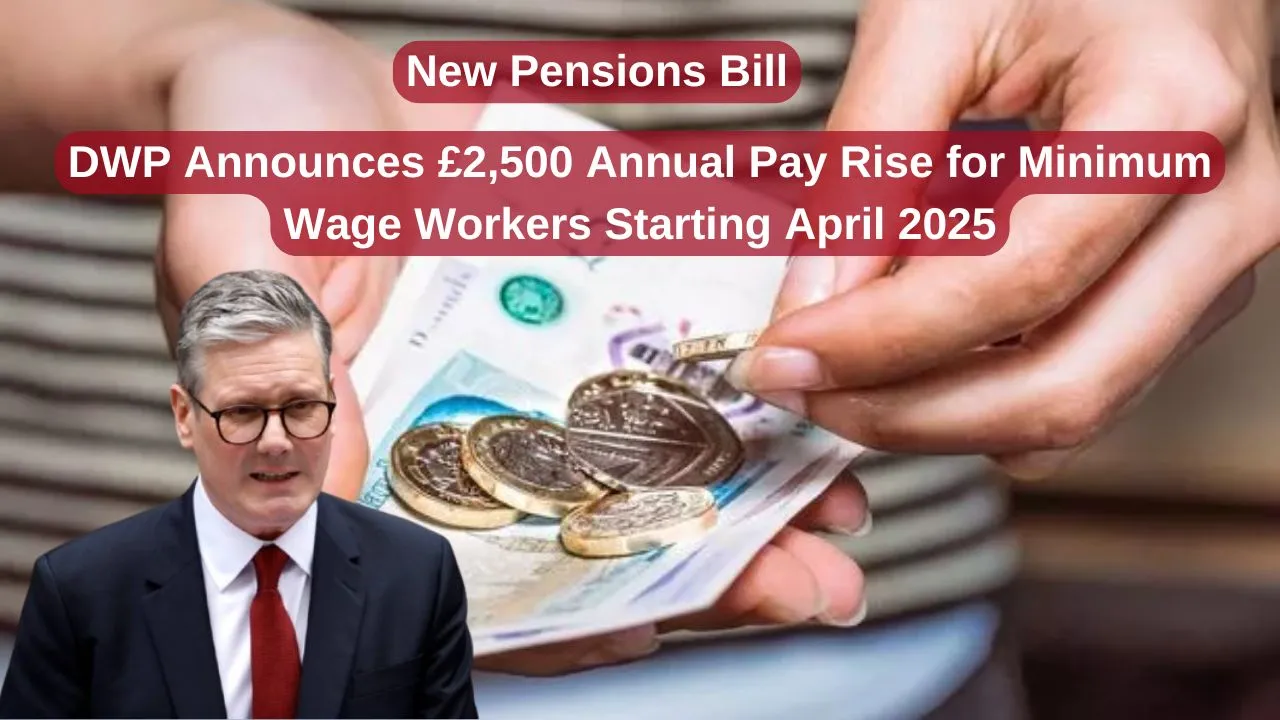Beginning on April 2025, literally millions of workers in the UK will experience a substantial rise in their income as the new minimum wage levels are about to come into effect. The Department for Work and Pensions (DWP) has stated that employees on minimum wage will get a rise of up to more than £2,500 extra a year. This increase plans to mitigate the problem of the rising cost of living as well as make sure that workers are earning a wage that is more economically viable in light of their conditions today. Here’s everything you need to understand regarding this income boost and how it will impact workers throughout the country.
Contents
- 0.1 The New Minimum Wage Rates: What To Expect
- 0.2 Who Will Profit from the New Wage Boost?
- 0.3 The Effect on Daily Life
- 0.4 Scope of Responsibilities of the Department for Work and Pensions
- 0.5 Looking to the Future
- 0.6 Related posts:
- 1 The Zodiac Signs with the Strongest Auras, According to Astrology
- 2 Kalaignar Magalir Urimai Scheme 2025 – ₹1000 मासिक सहायता के लिए ऑनलाइन आवेदन करें
- 3 Can You Spot the Hidden Carrot in 10 Seconds? Take the Optical Illusion Challenge and Become Puzzle ...
The New Minimum Wage Rates: What To Expect
The UK Government has set forward changes to the minimum wage levels with the aim of enhancing fairness across all workers, and especially paying closer attention to those who are deemed to be more at the bottom of the paragraphs. The stated reason for hoisting the minimum wage levels stems from the growing inflationary trends, rising costs of living, and the unparalleled need for stronger financial stability for the low-income section of the society.
With the new framework, workers bound on a monthly contractual basis are expected to receive an increase in the rate set for the lowest paid and minimum hourly wage which stands to be capped at an increase of upwards of £2500 per year, depending on the working hours and employment status.
Who Will Profit from the New Wage Boost?
The recent wage boost will help millions of workers across multiple sectors including hospitality, retail, and care work which tend to pay lower salaries. Incomes for full-time, part-time, and even temporary workers in these industries will increase.
Younger employees, even those under the age of 23, will also be positively impacted, albeit to a lesser extent. Individuals 23 years and older will receive the full wage increment while those below 23 will receive a smaller increase. Still, the intention is that every worker earning the minimum wage, irrespective of age or employment status, will be able to earn a better and more livable wage.
The Effect on Daily Life
An added £2,500 yearly may seem small, but makes a world of difference to minimum wage earners in their daily lives. For instance, a person who works 40 hours a week may see their income increase by approximately £50 a week with this wage boost. This money could help cover rising expenses such as bills, groceries, and transportation. Most importantly, these changes will help workers directly and in turn, help the economy as a whole.
Scope of Responsibilities of the Department for Work and Pensions
The DWP, as an example, has been targeted with one of the country’s most urgent problems, the minimum wage payment to workers. This involves checking on the payment of the wages by the employers and forcing new corrective actions whenever the employers do not comply with the organization’s wage policies.
Employers will be audited and assessed so that they can be certain of the new organizational structure. The DWP has set out wage regulations for the employers on payment of the minimum wage.
DWP dos not allow the employees to be paid less than the standard wage, and therefore they monitor and pay special attention to subcontractors where contracting out has grown. Payment sufficiency ensures social welfare and reduces disparities among the wage earners.
Looking to the Future
The new payment increase by 2,500 dollars won’t stop here as the initiative signaling. The government has shown its clear intent for the improvement on low-paid workers’ wage setting. Along with the increasing inflation, wage increment strategies are expected to help employees cope with the rate of inflation and other hindrances confronted in the economy.
To wrap things up, the £2,500 minimum wage increase, effective in April 2025, represents an important milestone in alleviating the struggles of workers with low incomes within the UK.

